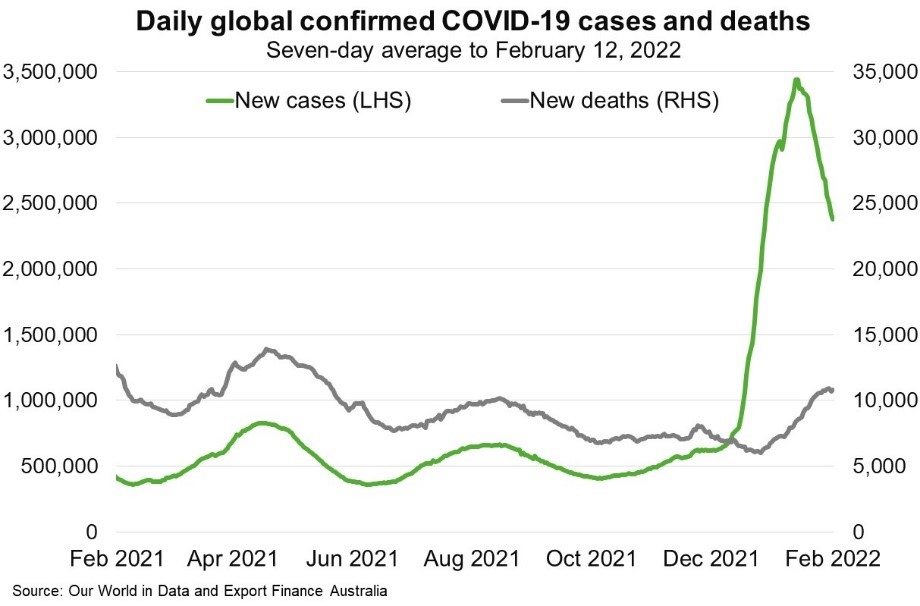Global—Omicron slows economic recovery, as risks to growth rise
The global economic recovery faces multiple challenges through 2022. As the Omicron COVID-19 variant spread, higher infections and renewed mobility restrictions worsened labour shortages and disrupted stretched global supply chains. Healthcare systems are under strain and the human and social costs remain high. But the Omicron variant is likely to disrupt rather than derail the global recovery, in large part because this strain of the coronavirus appears to be less fatal than previous variants (Chart). The IMF projects global growth to moderate to 4.4% in 2022 from 5.9% in 2021. Importantly, the IMF’s forecasts assume that adverse public health outcomes from COVID-19 decline to low levels worldwide by end-2022, as vaccination rates rise worldwide and therapies become more effective. Assuming more severe COVID-19 variants don’t emerge, economic activity should hold up.
Outside of the pandemic, downside risks to the outlook are large. Only 16% of global experts and leaders that responded to the World Economic Forum’s Global Risks Perception Survey (GRPS) felt ‘positive and optimistic’ about the global outlook. Most respondents expect the next few years to be characterised by consistent volatility or fractured recoveries that separate relative winners and losers. Economic risks have dominated the GRPS since the GFC. Indeed, the IMF warns that rising energy prices and supply disruptions may result in higher and more broad-based inflation. As advanced economies lift policy rates, risks to financial stability and emerging market capital flows, currencies and fiscal positions may emerge. Notwithstanding this, societal and environmental risks topped the latest GRPS. Economic hardship and rising inequality within and between countries, exacerbated by the pandemic, could raise social and political unrest and contribute to lower long term economic potential. Furthermore, there are evident geopolitical tensions rising, and climate risks have increased the probability of major natural disasters occurring.

